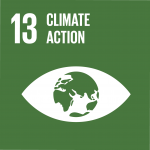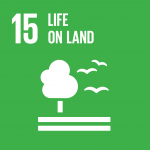Implementing SHARP+ to foster transformative climate actions in Uganda’s Cattle Corridor

This article was originally published on the FAO SHARP website on 9 February 2023
Uganda’s cattle corridor is facing increased climate extremes and variability, contributing to the reduction in agricultural yields, water scarcity, and pests and diseases, ultimately weakening the livelihoods and food security of the rural population. Unsustainable land use practices, such as rangeland degradation, bushfires, and deforestation, further exacerbate the adverse impacts of climate change on agriculture and the environment. And yet, 96 percent of rural households depend predominantly on rain-fed crop and livestock production as their main source of sustenance and livelihood, making the agriculture sector a major priority for climate change adaptation.
To address the climate-related challenges in the agriculture sector plaguing the cattle corridor, the Ministry of Agriculture, Animal Industry and Fisheries teamed up with FAO and UNDP under the Global Programme Scaling up Climate Ambition on Land Use and Agriculture through Nationally Determined Contributions and National Adaptation Plans (SCALA).
At the end of 2022, six local district government offices adopted FAO’s “Self-evaluation and Holistic Assessment of climate Resilience of farmers and Pastoralists” (SHARP+) tool to identify the main climate and non-climate-related hazards and their impacts on farming systems and households, as well as socioeconomic and environmental drivers of vulnerability and climate risk. This was done to establish the resilience levels of smallholder farmers and pastoralist households and then come up with local transformative adaptation solutions to enhance the resilience and adaptive capacities of smallholder farming communities to climate shocks.

Over 450 household surveys (29 percent of which were female-headed) were conducted across the cattle corridor landscape to capture critical aspects of household and farm systems, including environmental, social, agricultural practices, economic, and governance factors, using a holistic approach to assess all aspects of the farm and pastoral system. The landscape is characterized by five major farming systems, including the Pastoral and Annual Crop system; Banana Millet Cotton System; Annual Cropping and Cattle Teso System; Annual Cropping and Cattle Northern System.
A team of 24 enumerators from local district government and farmer organizations dispatched across six representative districts of the cattle corridor (Kamuli, Katakwi, Isingiro, Nakasongola, Amudat, and Amolatar), each characterized by different agroecological and socioeconomic conditions. The enumerators were trained by the SHARP team at FAO headquarter and supervised in the field by FAO and UNDP climate change specialists.

In 2023, the SHARP results will be validated through multi-stakeholder engagement at the community level and serve as the basis for the local government, civil society, and private sector to co-develop transformative and inclusive climate action solutions that respond to the needs, capacities, and vulnerabilities of smallholders while reducing greenhouse gas emissions.
Under the SCALA programme, local district government capacities will be strengthened to integrate the transformative climate actions into district development planning and budgeting processes, as well as public-private sector de-risking instruments be developed to unlock investments in climate-resilient agriculture.
***
This exercise was achieved through a joint effort of the FAO-UNDP SCALA programme team, and the FAO SHARP team.
SHARP+ tool represents one of the tools included in the SCALA programme’s toolkit for carrying out climate-risk informed systems-level assessment. These assessments are crucial for understanding the complex interactions between various natural, social and economic factors driving the vulnerability of smallholders to climate hazards and, ultimately, for designing transformative and inclusive adaptation solutions. Such assessments enable policymakers and stakeholders to make informed decisions and develop effective strategies to adapt to and mitigate the effects of climate change on the agriculture sector, while also promoting sustainable and resilient food systems.

